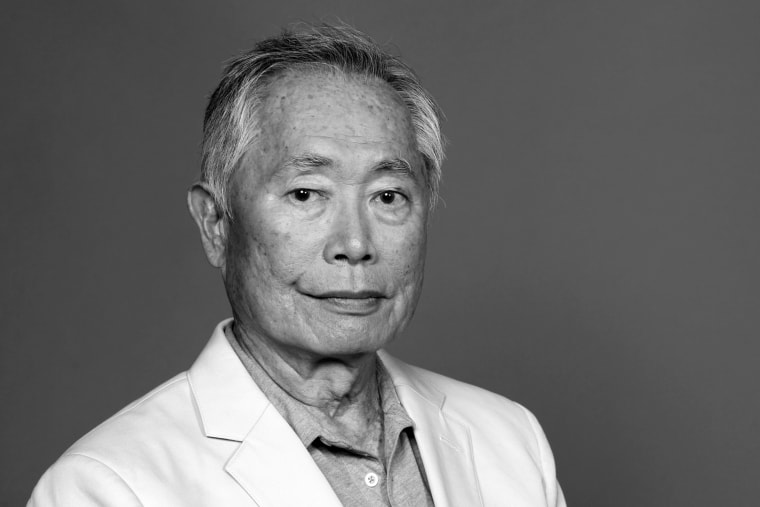The U.S. Air Force Academy has distributed actor and activist George Takei's graphic memoir "They Called Us Enemy," which recounts his family's incarceration during World War II, to cadets as part of a new reading initiative.
In the bestselling book, Takei, known for playing Lt. Hikaru Sulu in the original "Star Trek" TV series, describes what it was like to be a 5 year old who was one of the approximately 120,000 people of Japanese descent who were forcibly removed from their West Coast homes and put into concentration camps in the 1940s.
The academy's dean of the faculty, Brig. Gen. Linell Letendre, shared her excitement for the program's book selection this year as she welcomed the new class of cadets on social media.
"Our shared institutional read this year focused on dignity and respect," she said on a separate Instagram post. "We are getting our basics ready for what’s ahead."
In 2019, Takei said on NBC's "TODAY" show that he wanted to educate young people about this "dark spot" in American history. As someone who grew up enjoying comics, he said he felt this would be the best way to share the childhood trauma he experienced.
Although Takei said some of his memories from that time are fuzzy, he distinctly remembers when soldiers came to his family's house in May 1942, a few weeks after his fifth birthday.
"Suddenly we saw two soldiers marching up our driveway, carrying rifles with shiny bayonets on them. And they stomped on the porch and with their fists began banging on the door," he said.
The graphic novel not only explores his incarceration, but also how the experience planted the seed for his activism later in life.
Takei shared in a separate interview with NBC10 Boston how the country repeats "the unending cycle" of cruelty and injustice. He wants his book to inspire young Americans to break it.
"My hope is, and I consider this a book of hope, that people grow up knowing this story so that we have more people who are determined to prevent this type of thing," he said.
Follow NBC Asian America on Facebook, Twitter and Instagram.
